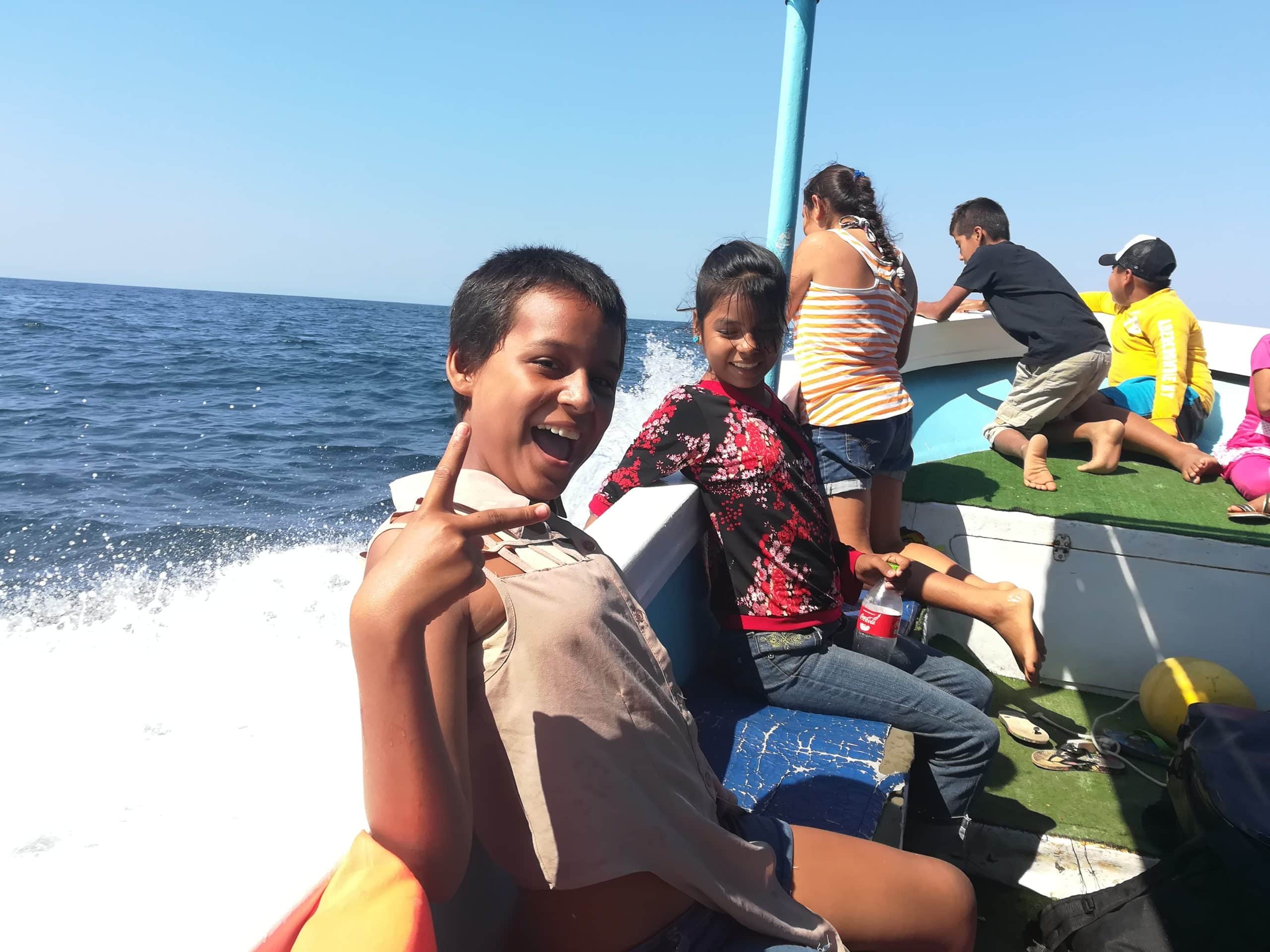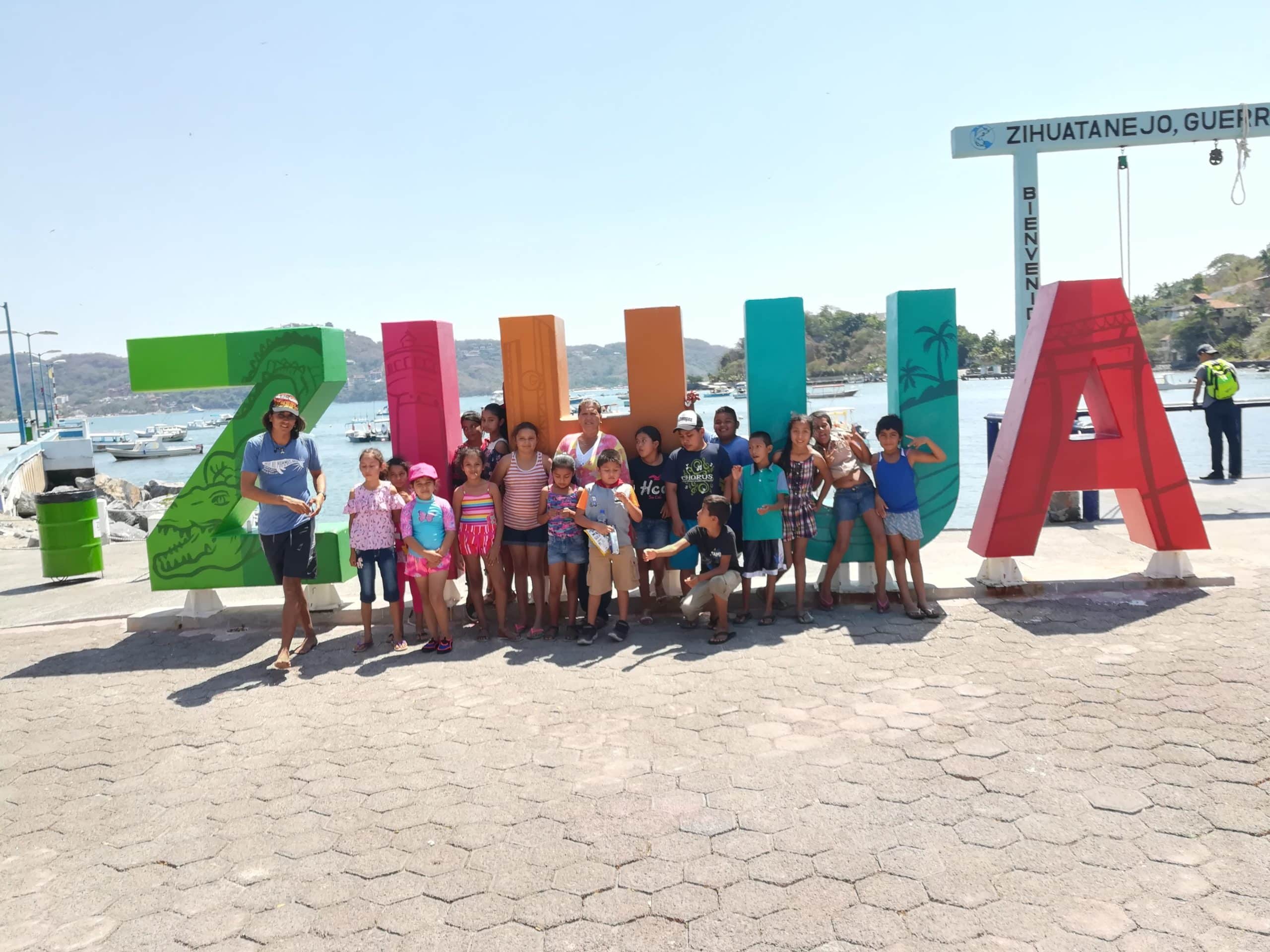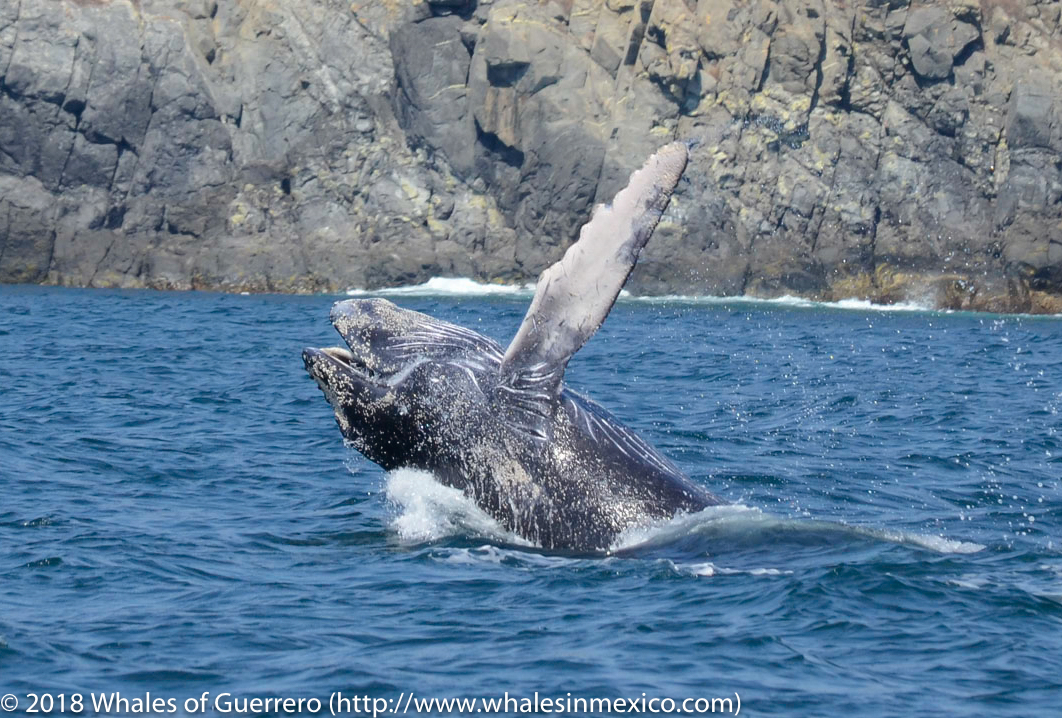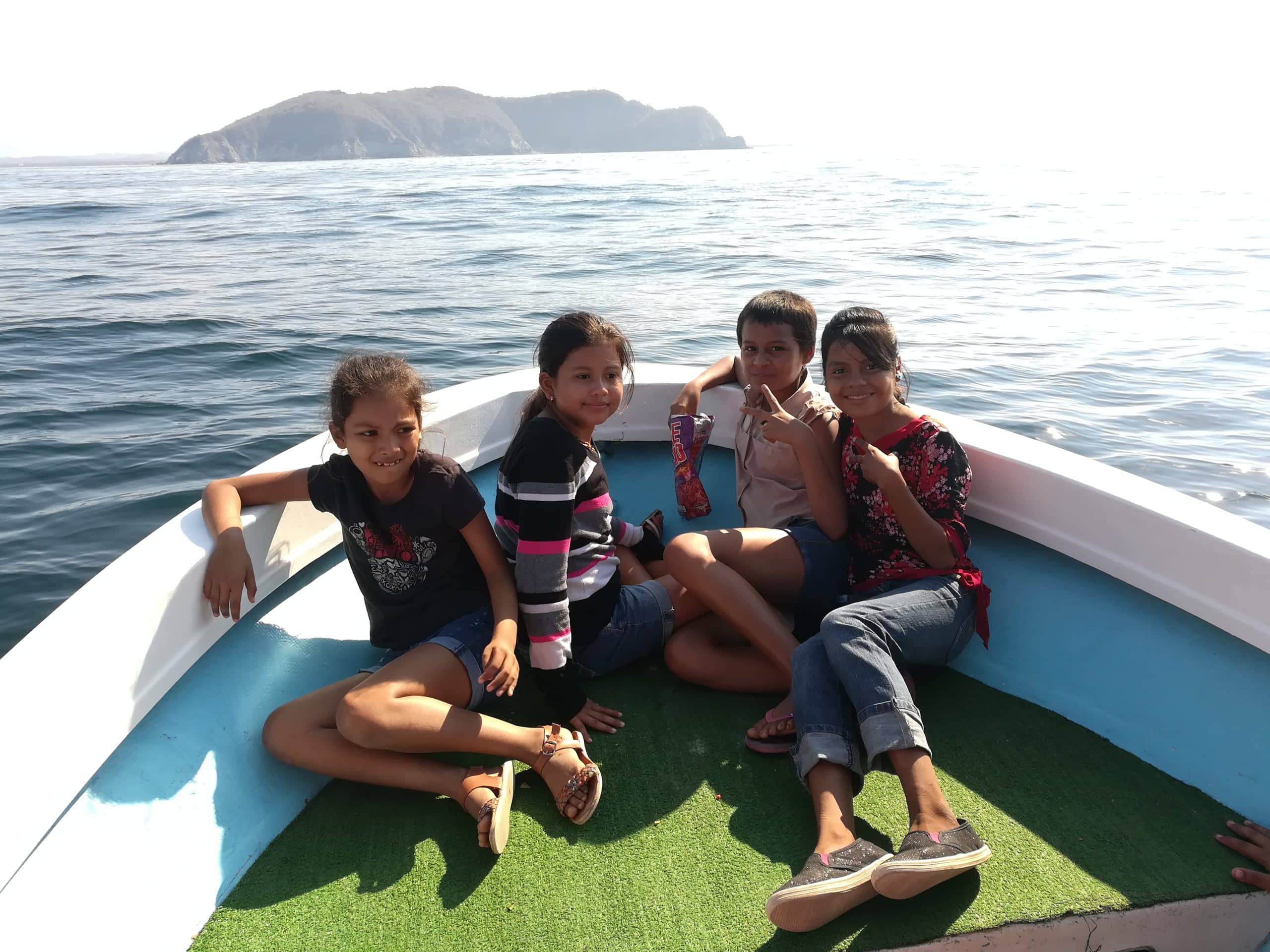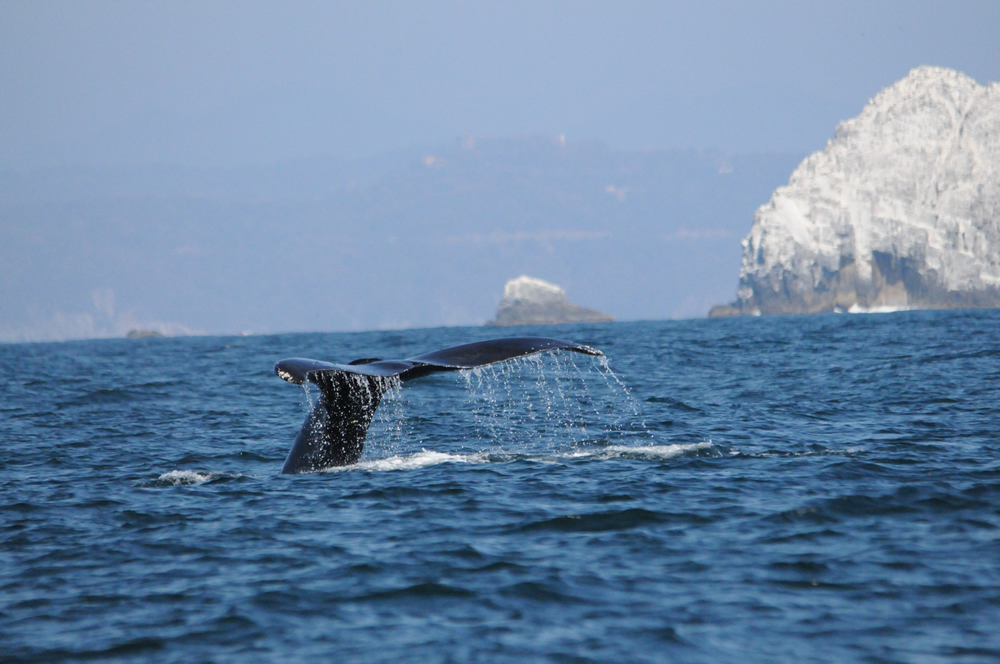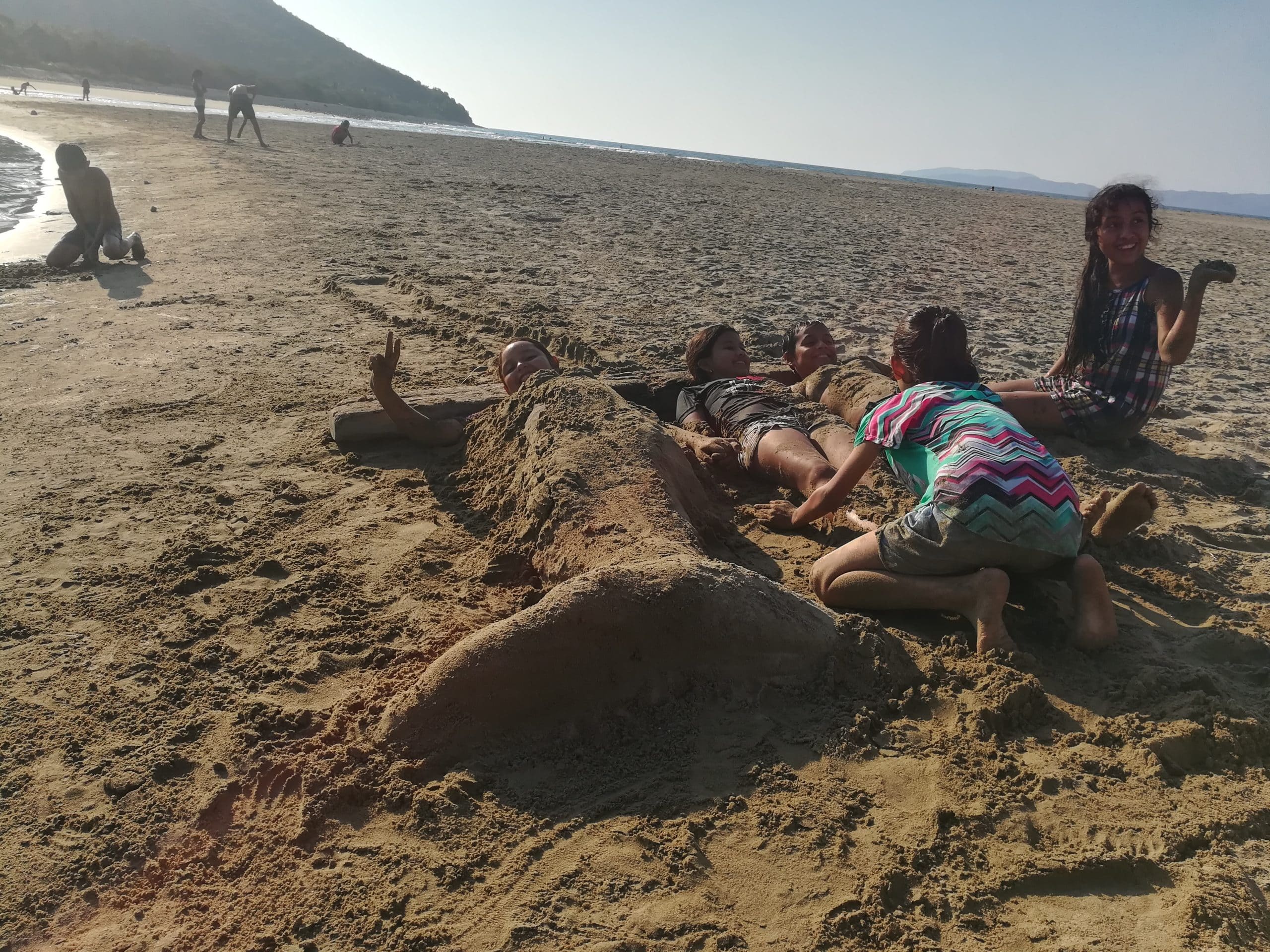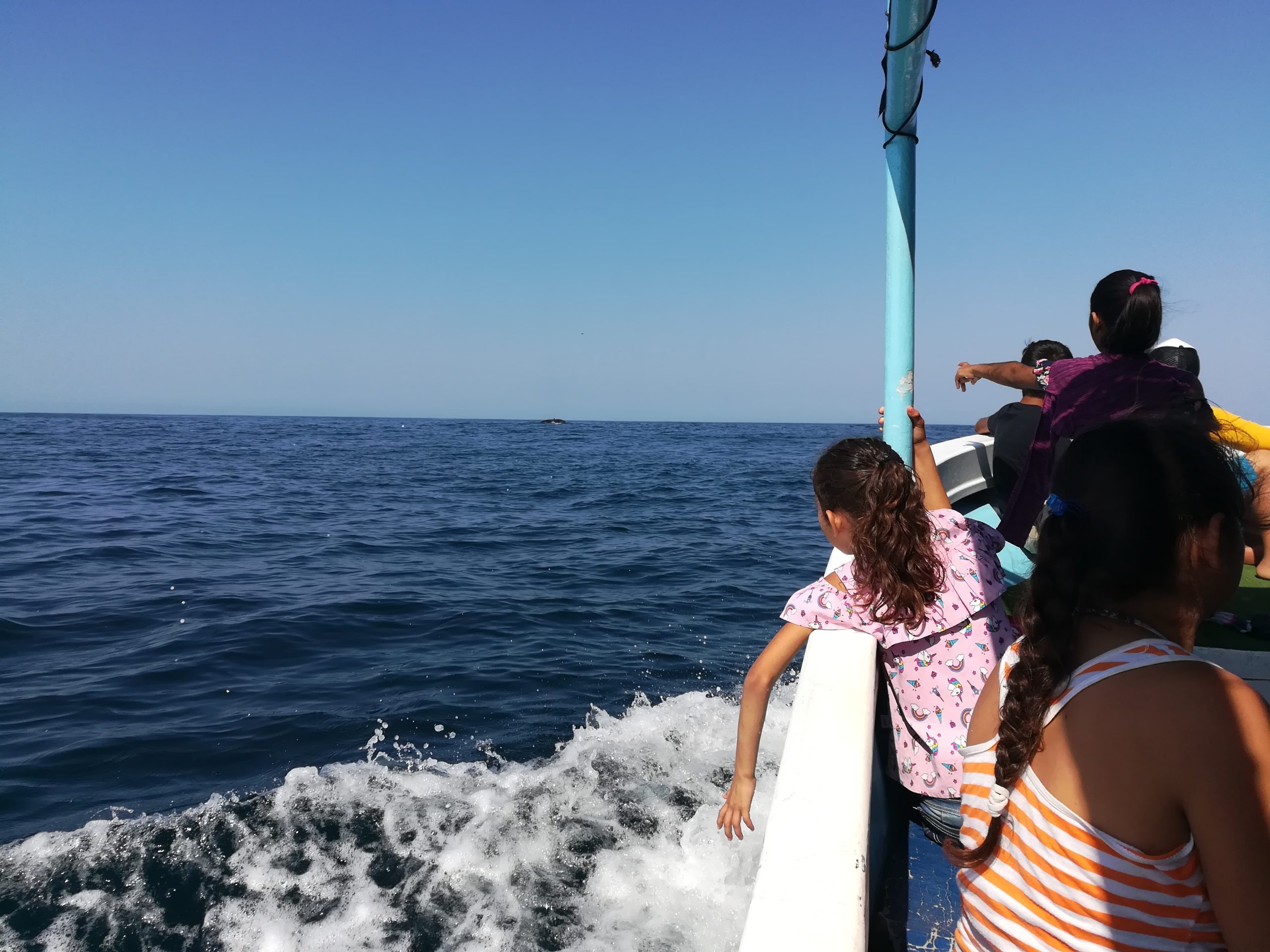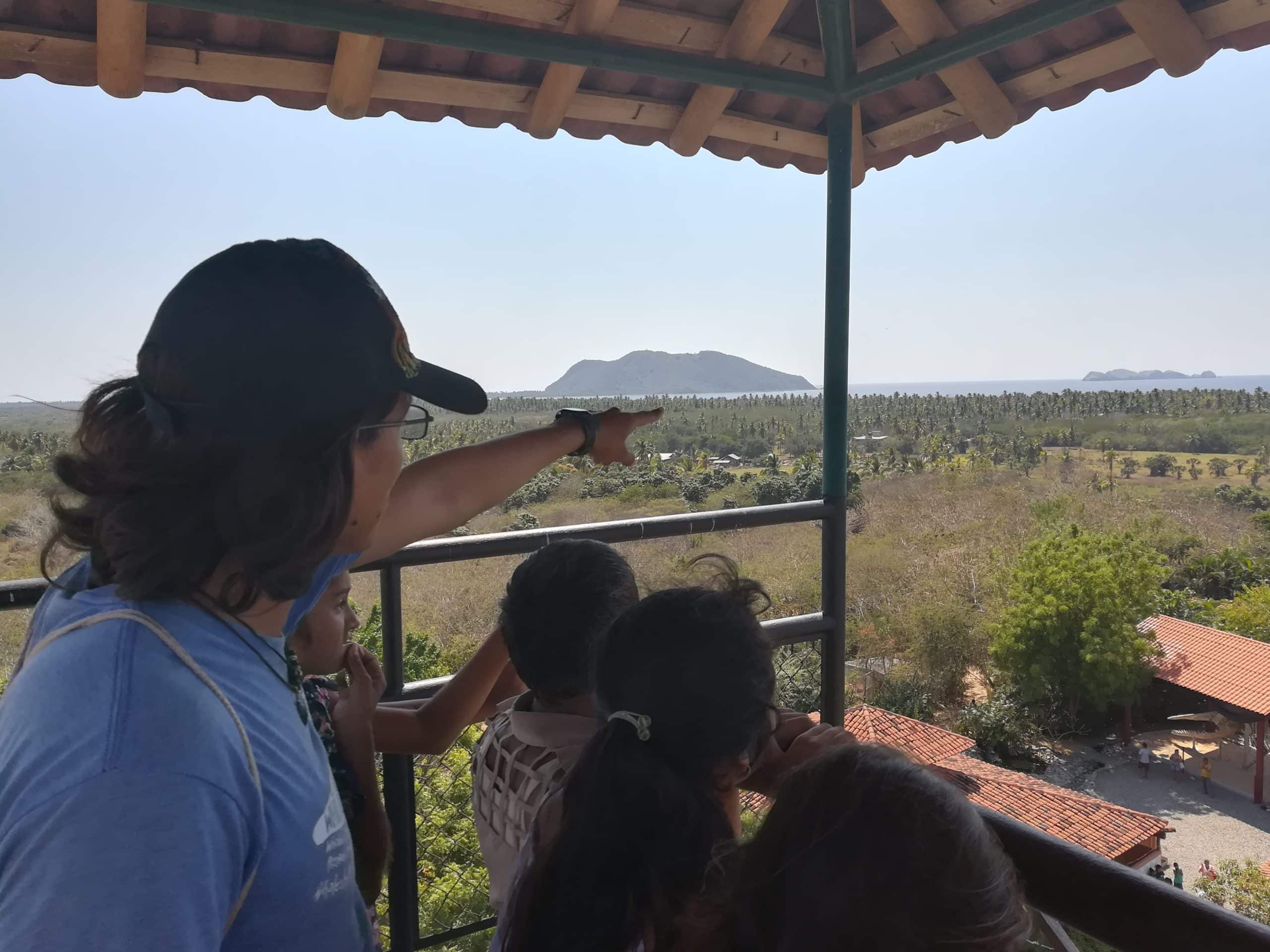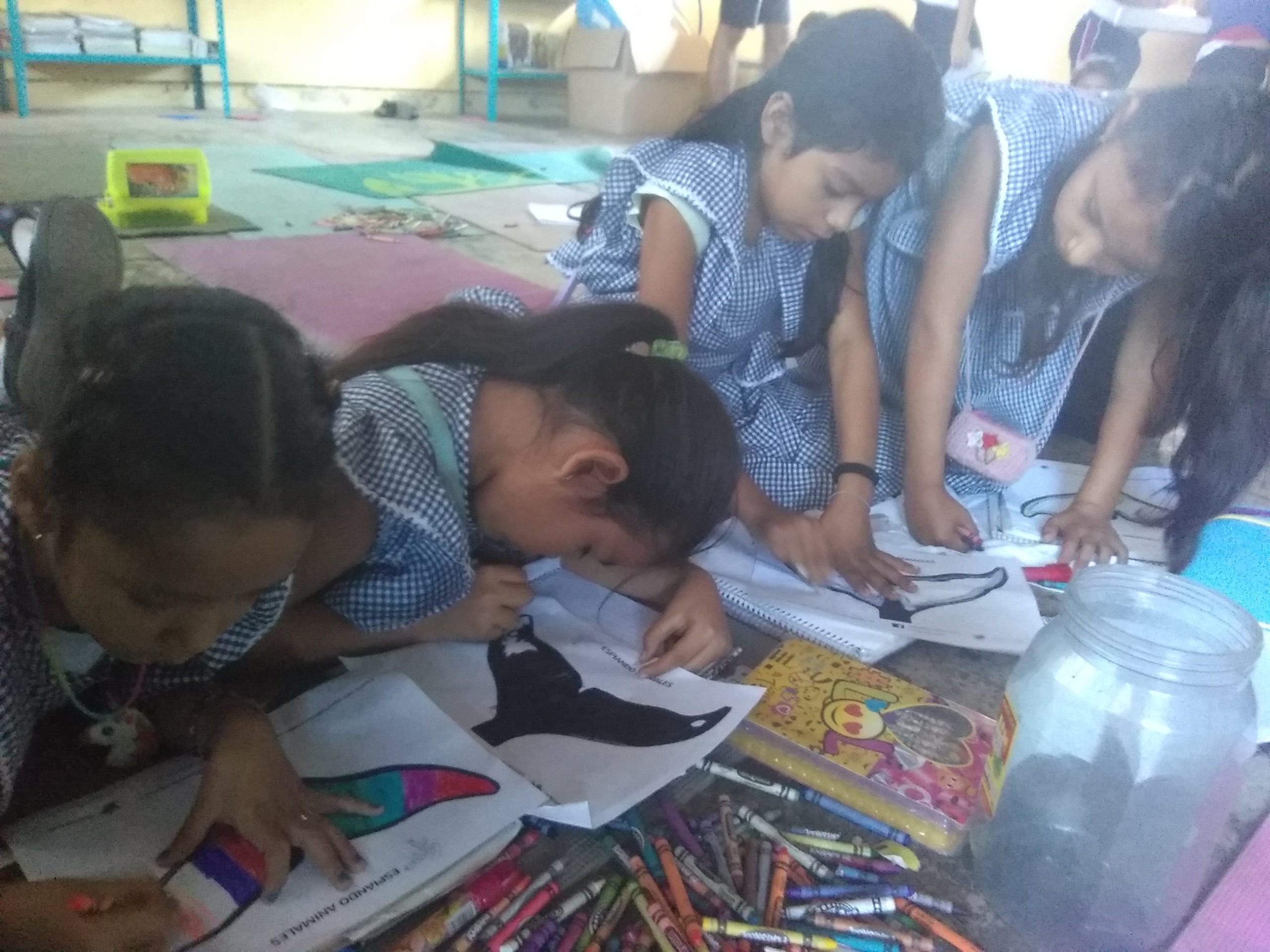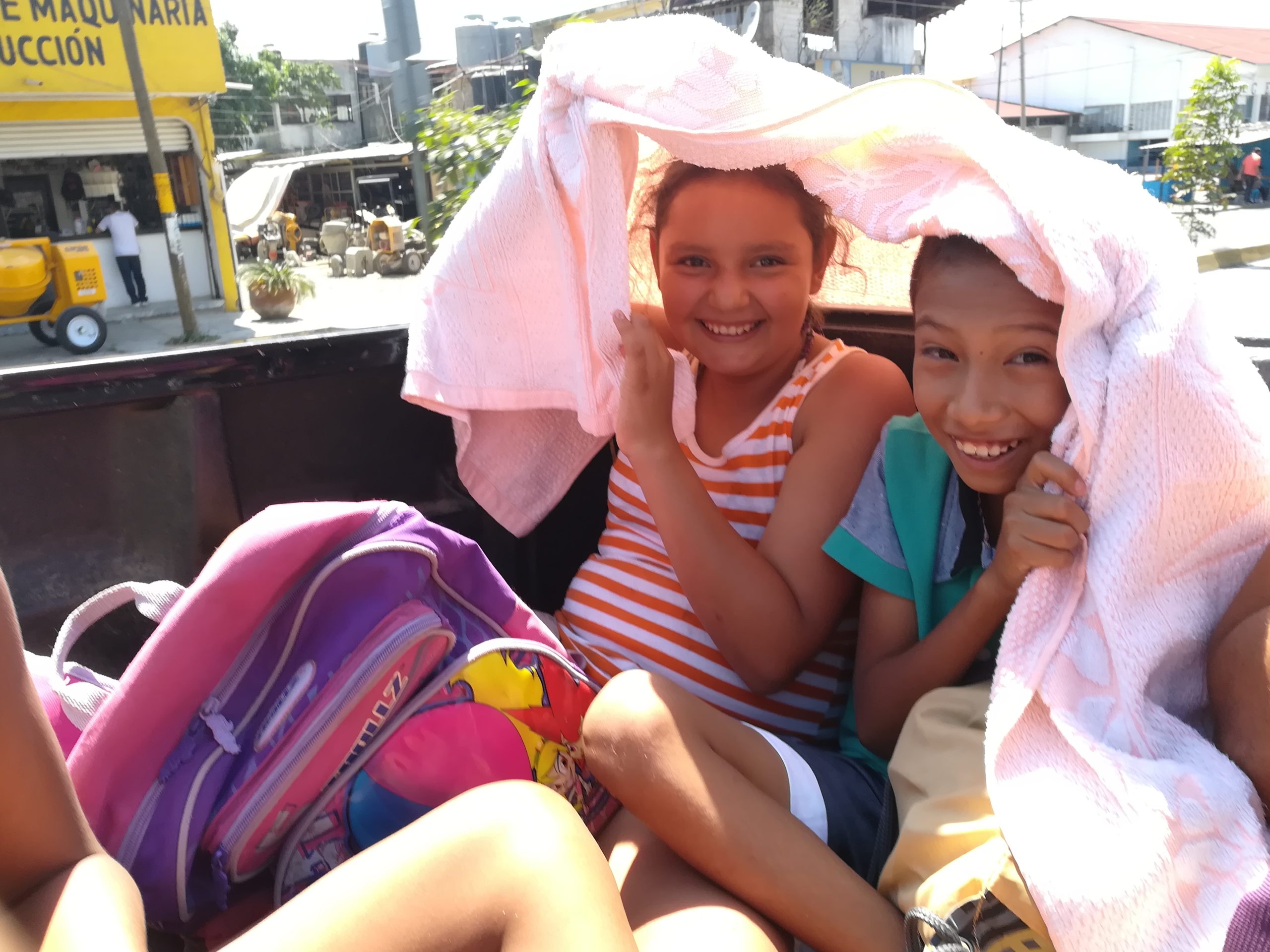Bringing Marine Conservation Workshops to Juluchuca’s Youth.
It’s no surprise that Juluchucans love the ocean. Whether it’s fishing, swimming, or just hanging out, the local beach is a popular place on evenings and weekends. Residents have a deep knowledge of their local marine ecosystem. They easily recognize subtle changes that occur in the water over the span of a few days or the broader, sweeping effects of climate change.
…sometimes all it takes to harness that inner conservationist is providing an experience with one of the ocean’s most majestic creatures, the humpback whale.
I often wonder how we can harness this love and connection with the sea to inspire more people to become conservationists. I look at the kids we work with and wonder what their relationship with the ocean will be when they reach their parent’s age. As we learned last winter, sometimes all it takes to harness that inner conservationist is providing an experience with one of the ocean’s most majestic creatures, the humpback whale.
In partnership with Ballenas de Guerrero, a community-driven conservation NGO in Barra de Potosi, Playa Viva sponsored both a classroom workshop and a whale-watching experience for the kids of Juluchuca for the second year in a row. Raul Ramirez and Andrea Garcia, both trained biologists with Whales of Guerrero, led both of these experiences, first visiting the classrooms to teach the elementary school students the basics of marine biology, then moving onto the specifics of what species of whales we find on Costa Grande and their threats due to human interaction and climate change.
We want them to be delighted when they discover that they have amazing animals as neighbors, right in front of them on their own beach
While the workshop engaged all of the students at the elementary school, there was room for only 17 students on the whale watching excursion. Students were selected based on their performance in school and interest in marine biology. Along with Raul, Andrea and Ariel, Playa Viva’s Education Coordinator, the kids embarked on a full day ocean conservation experience, beginning with a 3-hour whale watching tour during which they saw several humpback whales. During this time they observed how Raul and Andrea collected data and learned how that information contributes to whale conservation.
Afterwards, the group visited a nature refuge in Barra de Potosi to see otters, birds and other terrestrial wildlife before closing out the day with a chance to swim in the ocean and let all their new knowledge soak in.
“Our intention is always to incentivize the curiosity and interest in nature amongst the children,” explained Raul. “We want them to be delighted when they discover that they have amazing animals as neighbors, right in front of them on their own beach. Humpback whales are usually good ambassadors for this since it is difficult to forget an encounter with giants. These are brief experiences that will hopefully mark something important in the lives of these children and inspire them to conserve their ocean.”
Humpback whales are usually good ambassadors for this since it is difficult to forget an encounter with giants.
A year later, many of the kids still talk about the day they went to see the whales. A few of them want to grow up to become marine biologists. The rest have taken steps to conserve their ocean ecosystems in Juluchuca, participating in beach clean-ups and turtle releases with La Tortuga Viva. Sometimes during these experiences at home, we are even lucky enough to spot a whale out in the water, reminding us all of the important role we play in conservation.
We are incredibly grateful to Whales of Guerrero for their continued work in education, research and conservation in Barra de Potosi and beyond. We are currently looking for sponsors to help finance another whale watching workshop and boat trip this Feb. The total cost is 400USD. Donations can be made through our fiscal sponsor, The Ocean Foundation.
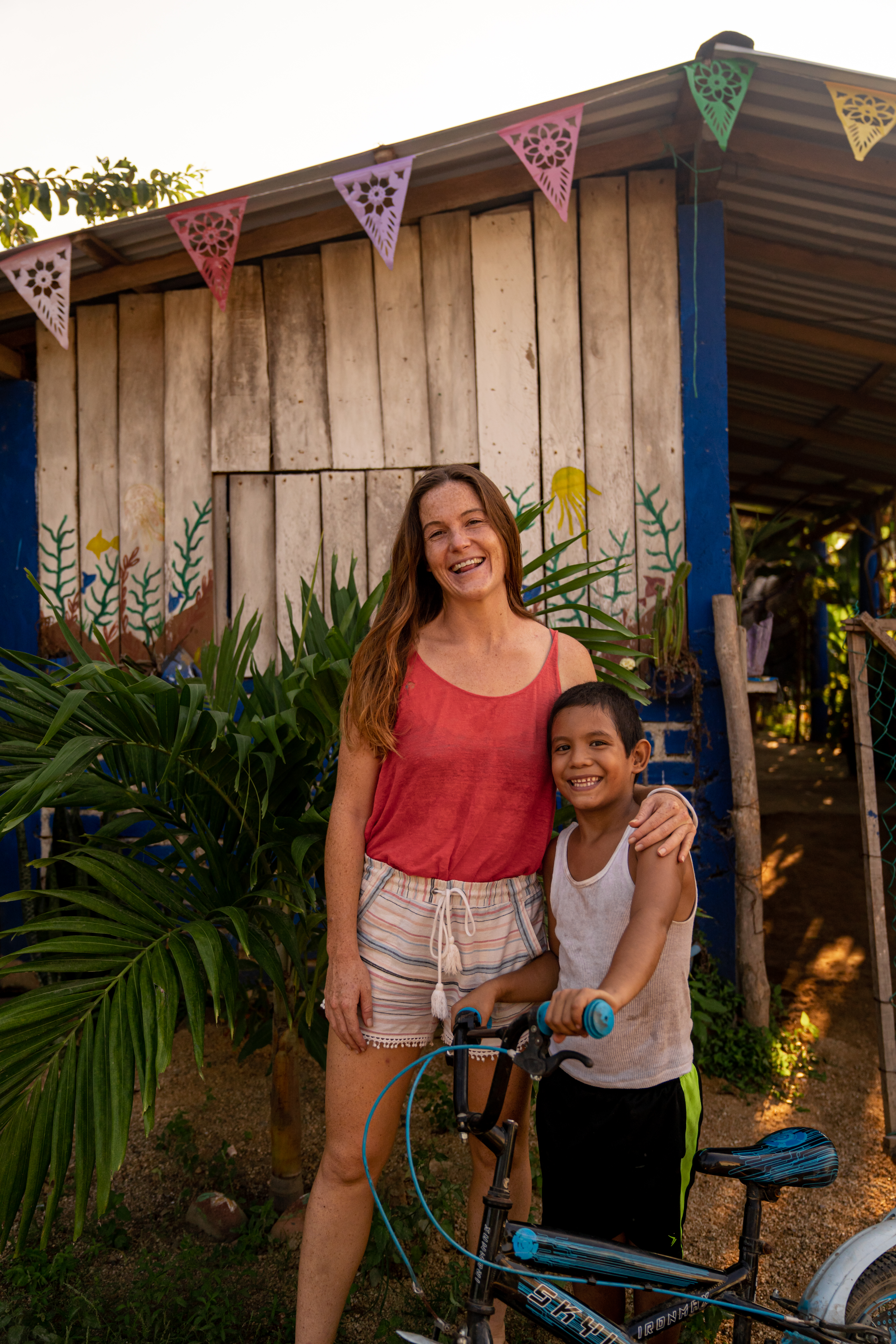 Colleen Fugate es Gerente de Impacto Social y Ambiental en Playa Viva. Ella vive en Juluchuca. Aprenda más sobre su trabajo involucrando a nuestras comunidades locales a través de nuestros programas de impacto social.
Colleen Fugate es Gerente de Impacto Social y Ambiental en Playa Viva. Ella vive en Juluchuca. Aprenda más sobre su trabajo involucrando a nuestras comunidades locales a través de nuestros programas de impacto social.

